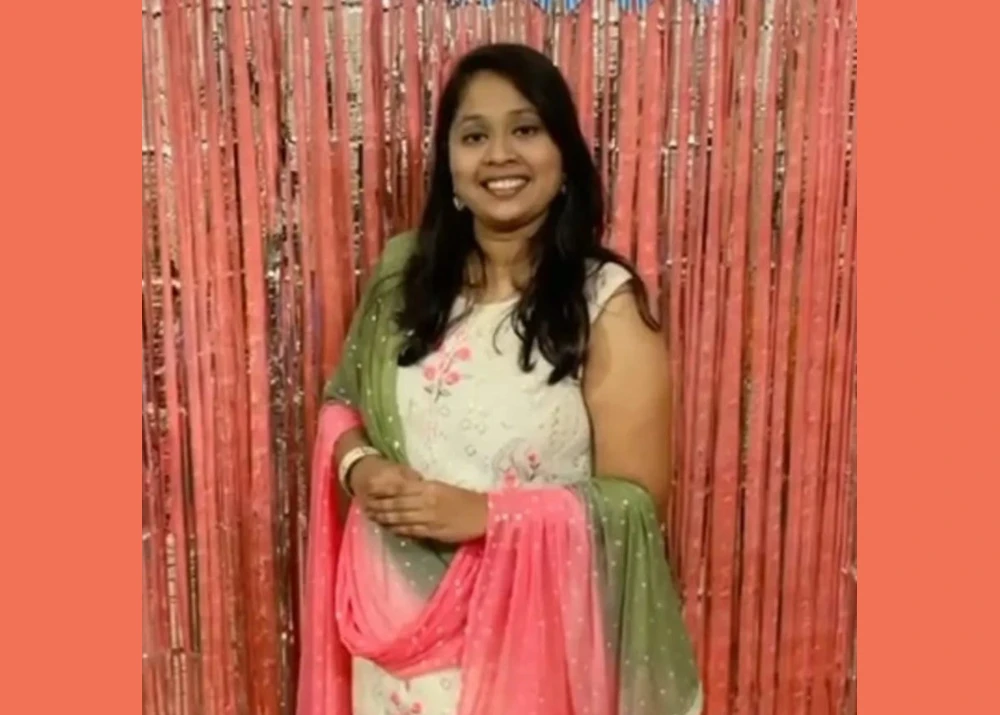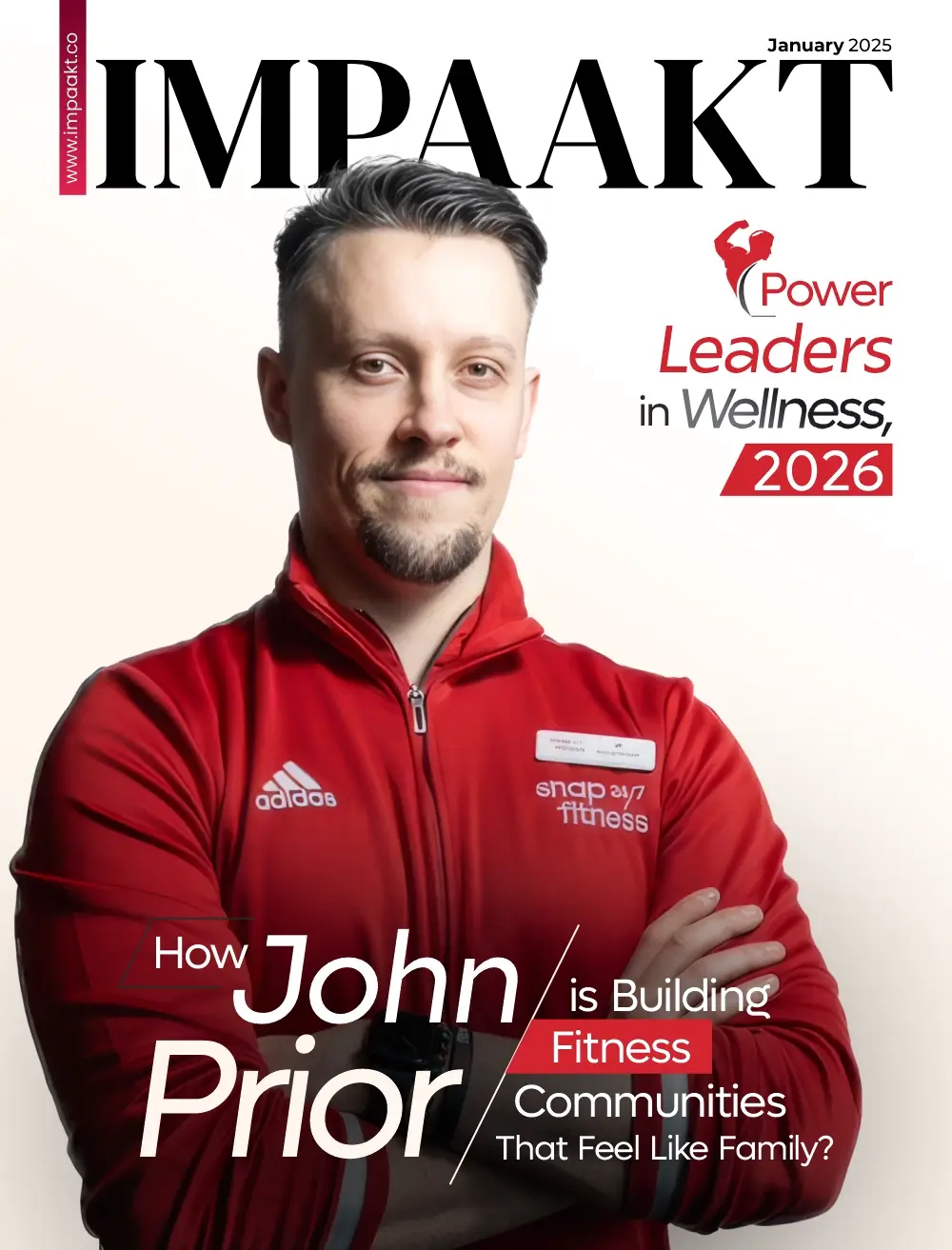Driven by a passion that echoes John Dewey’s belief that “Education is not preparation for life; education is life itself,” Prajakta Kamble, the Founder of Wisdom Classes approaches the classroom not as a stage for rote learning, but as a canvas for ignited curiosity, boundless growth, and empowered lifelong learners.
With a journey in education starting with just three students in her academy, Prajakta has now contributed to the advancement of over 100 students. Each day, she finds joy in witnessing the growth of her students and their significant academic achievements.
But Prajakta believes in extending beyond the textbook. She believes in the overall development of her students. For her, it’s about crafting a dynamic learning space where every student feels valued, supported, and challenged to reach their full potential.
Dewey’s quote resonates deeply with Prajakta because it underscores the profound connection between education and life itself. The classroom isn’t just about academic excellence; it’s about shaping responsible citizens, critical thinkers, and empathetic individuals for her.
In the following interview with IMPAAKT, Prajakta talks about her journey as a leader in the education sector and much more!
Prajakta, can you start by sharing a bit about your personal journey and what inspired you to establish Wisdom Classes?
I started my classes back in 2016 when I was in my second year of engineering. I was at my aunt’s place for holidays and a few students approached me asking if I could take their tuitions as they needed help with English and Math subjects.
Back then my parents did not want me to start an academy as they felt if I start a venture, I won’t be able to concentrate on my studies. But I always wanted to be independent since a very young age.
So, I thought this opportunity to model young minds and also become financially independent along the way. With this thought I eventually started my classes with barely three students and now we have successfully educated and guided more than 100 students from different educational boards. So, in my academy we have also taught many students free of cost as they couldn’t afford the fees.
As the founder of Wisdom Classes, what is your vision for the institution and how has it evolved since its inception?
In my educational academy, I aspire to create a nurturing environment where students can learn and grow based on their individual needs. The goal is to provide guidance and education tailored to each student, using a variety of engaging activities.
The vision is to make learning enjoyable and effective, aligning with the students’ syllabus while incorporating diverse and interactive teaching methods. Ultimately, the Wisdom Classes aims to be a place where education goes beyond traditional methods, fostering a love for learning and helping students succeed in their studies.
What motivated you to cater to both international and Indian students? How do you address the diverse learning needs of these students?
So, in covid when the entire nation was shut down, my academy was also shut down due to many restrictions. In the meanwhile, I came up with an idea of online classes for Indian students and posted an advertisement on Facebook and Instagram.
To my surprise, one of the parents who is based in England approached me for his daughter’s academics. At first, I was not so sure about it but I thought let’s give it a try and see how it goes.
Later, through parents’ references (mouth to mouth publicity) I landed up taking academic classes for international students of different countries like UK, South Africa, Netherland, Australia, and Germany. So, this is how my journey started with international students. I have never as planned anything for international students. The doors of opportunity kept opening up for me and I promptly took my chances and grabbed those opportunities.
Coming back to my point, I was a little hesitant in taking up international gigs as there is a huge difference in learning needs of international students. They are not always interested in studies or they are not pressurized as much as Indian students are from their parents and teachers.
Indian students are more into traditional learning and international students are more into activities’-based learning.
So, I basically teach all students through different activities and according to capabilities of students because each student is different and their needs have to be understood before helping them.
Can you provide an overview of Wisdom Classes and the range of educational services it offers to students?
Wisdom Classes is basically dealing in academic studies for international and national students, Spoken English for kids, teens and adults and Soft Skills for teens and adults. We also provide special batches of grammar and handwriting.
For international students we also help them in SAT preparation which is an entrance exam for high school. I have taught students of age three to 65. My oldest student was of age 65 who was with me in spoken English class.
How do you strike a balance between offline and online classes to accommodate the preferences of your students? Are there any unique challenges you face in each mode?
To strike the balance the very basic thing that I do is keep their batches at different time zones. Talking about online classes very few online classes consist of students more than one. Maximum students in online coaching are for individual or personal coaching. The pro of online class is you can reach to any student at every corner of world.
Regarding offline classes, I take only five students in one batch as we are specialized in giving personal attention and giving time to each student separately. I don’t believe in bulk teaching or teaching a greater number of students at a time.
Tell us about the spoken English batches you offer for all ages. How do you tailor these classes to meet the diverse language proficiency levels of your students?
I started Spoken English batches in the year 2020. These batches are mainly in online mode. At first, I have a proper conversation with interested students and I know their detailed background and their expectations regarding the language.
Later, on basis of the conversation I suggest them on which level can we start. Basically, I have three levels of proficiency those are basic, intermediate and advance. But there are also a few cases where students don’t even know the alphabets so I need to start from a syllabus of nursery. This scenario mostly occurs in the age group above 40s.
What role do extracurricular activities play in the overall development of students at Wisdom Academy, and how do they complement the academic curriculum?
Extracurricular activities play a really important role. These activities not only support them in academics but also in their overall development. We have different activities like brain storming, team building, confidence building, etc. We also arrange different celebrations on different occasion where students take initiative and plan everything. This helps them to be creative, share ideas, be independent and a great bond is developed.
We have also started Fun camps for children which helps them get more active and detox from mobile phones and online games.
Can you highlight any success stories or notable achievements of your students that showcase the effectiveness of Wisdom Academy’s approach?
There are many success stories but the one particularly remarkable for me was with my year-old student. So, basically, she was travelling abroad and she needed help in answering questions that are asked on the airport. After the completion of her entire course, she was able to answer all questions effectively and confidently.
My first international student who never cleared her math exams with A grade had cleared her exams with A grade and her parents were really happy. There are students who can’t even read properly even if they are in 7th standard. Once these students are able to read there’s a great happiness on parents face and seeing that smile is the best feeling.
As a leader in the education sector, what advice would you give to aspiring educators looking to make a positive impact in the K12 space?
As a leader in the education sector, here are some pieces of advice for aspiring educators looking to make a positive impact in the K-12 space:
- Passion for Education: Cultivate passion for education and a sincere desire to make a positive impact on student’s lives.
- Continuous Learning: Education is a dynamic field, and staying current with best practices, research, and new technologies is crucial. Engage in continuous professional development to enhance your teaching skills and adapt to evolving educational trends.
- Student-Centered Approach: Prioritize the needs and well-being of your students. Understand their individual learning styles, strengths, and challenges. Create a positive and inclusive learning environment that supports the diverse needs of all students.
- Build Relationships: Establish strong connections with your students, colleagues, and parents. Effective communication and relationship-building are key components of successful teaching. Building trust and rapport with your students can positively impact their learning experience.
- Embrace Diversity and Inclusion: Recognize and celebrate the diversity within your classroom. Create an inclusive environment that respects and values each student’s background, experiences, and perspectives. Tailor your teaching methods to meet the needs of a diverse group of learners.
- Incorporate Technology: Integrate technology into your teaching practices to enhance engagement and prepare students for the digital age. Stay informed about educational technology trends and leverage them to create interactive and meaningful learning experiences.
- Collaborate with Colleagues: Collaborate with fellow educators to share ideas, resources, and best practices. A collaborative approach fosters a supportive professional community and can lead to innovative solutions to common challenges.
- Adaptability: Be flexible and open to adapting your teaching methods based on the evolving needs of your students and the educational landscape. Embrace change and view it as an opportunity for growth and improvement.
- Reflective Practice: Regularly reflect on your teaching practices, lessons, and interactions with students.
Finally, looking ahead, what do you envision for the future of Wisdom Classes, and what legacy would you like to leave as an educator and founder?
As the founder and leader of Wisdom Classes, I envision a future where the institution continues to thrive as a center of excellence in education, known for its innovative and student-centered approach. Here are some aspects of the future vision for Wisdom Classes and the legacy I aspire to leave:
- Innovation and Adaptability: Wisdom Classes will be at the forefront of educational innovation, constantly adapting to new pedagogical approaches, technologies, and research. The institution will serve as a model for how to integrate cutting-edge practices while maintaining a focus on student well-being.
- Global Perspective: I envision Wisdom Classes fostering a global perspective among students, preparing them for a world that is increasingly interconnected. The curriculum will include elements that promote cultural awareness, global citizenship, and a sense of responsibility for addressing global challenges.
- Technological Integration: The academy will leverage technology to enhance the learning experience, making education more accessible and personalized. Virtual and augmented reality, artificial intelligence, and other emerging technologies will be seamlessly integrated into the curriculum to prepare students for the digital future.
- Social Impact: Wisdom Classes will instill a sense of social responsibility in its students. Graduates will be encouraged to contribute to society in meaningful ways, whether through philanthropy, community service, or other forms of social impact.
As an educator and founder, the legacy I aspire to leave is one of transformative impact. I hope to be remembered as someone who was deeply committed to the success and well-being of students, who fostered a culture of continuous improvement, and who inspired a love for learning that extends far beyond the classroom.











